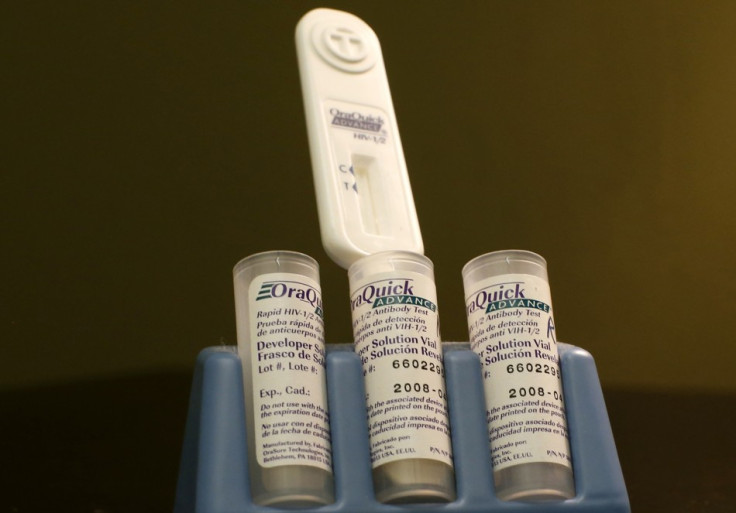Self-Testing For HIV ‘Could Be Answer to Controlling Epidemic’

Being able to test yourself for HIV at home could be the answer to controlling the global epidemic that 34 million people live with worldwide.
Researchers at the McGill University Health Centre conducted a systematic review of the effect self-testing has on HIV screening.
The report, published in PLoS Medicine, looked at 21 worldwide studies examining two self-testing methods; supervised self-testing, where the person is aided by a health care professional, and unsupervised self-testing, where the person has no help.
They found that both methods significantly increased screening uptake, finding people preferred self-testing to facility-based testing. Research also showed people preferred oral testing, with a swab, to blood tests.
Nitika Pant Pai, first author of the study, said: "Thirty years into the HIV epidemic, there is no vaccine in sight. Treatment as a prevention strategy has been known to work, but uptake of HIV screening seems to be limited by a societal problem: HIV stigma and perceived discrimination."
It is estimated that around 50 percent of people living with HIV do not know they have the disease. Every year 2.5 million people are diagnosed.

HIV slowly destroys blood cells that defend the body against illness. It is also the virus that can cause AIDS, although with effective treatment, this is no longer an inevitable later stage of HIV.
The self-tests for HIV examined the use of oral fluid samples from gum lining at a person's own home and results can be provided in 20 minutes, although this then has to be confirmed at a medical centre.
Pant Pai said: "The preference [for self-testing] was largely driven by the fact the oral self-tests are non-invasive, convenient, easy to swab and do not involve a finger stick or blood from your arm for a preliminary screen. A lot of people also wanted to take the oral self-test home to test their partners."
The team said that, by allowing people to conduct their own tests and thus removing the stigma that surrounds the process, early detection rates and treatment would be improved, meaning transmission would also be reduced.
They are now calling for governments across the world to look at how self-testing could be put into practice.
"We have, as a society, made great progress with biomedical tools, drugs and strategies, but we haven't conquered HIV-related stigma and perceived discrimination. The time is now right to tailor strategies to suit the preferences and lifestyles of patients with a view to expand access," Pant Pai said.
© Copyright IBTimes 2024. All rights reserved.







